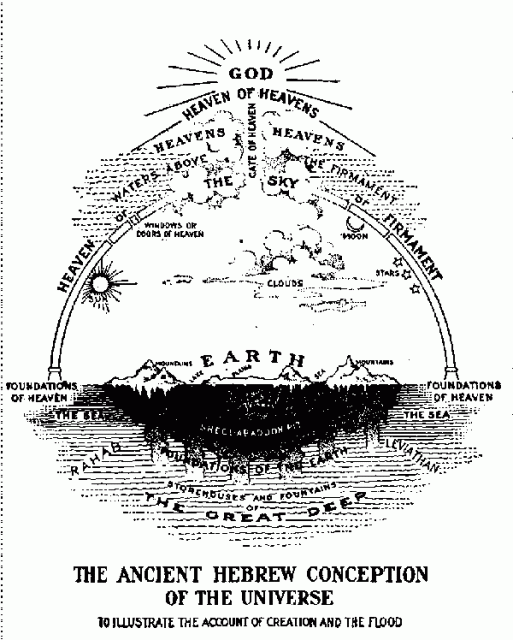Do you have evidence to support this?
Raqiya` - Old Testament Hebrew Lexicon - King James Version
Raqiya`
extended surface (solid)
considered by Hebrews as solid and supporting 'waters' above
http://en.wikipedia.org/wiki/Heaven_(Judaism)
The word "raqiya", “firmament”, comes from riqqua, meaning “expansion,” “broad,” and “beaten out.”[1] In ancient times, brass objects were either cast in the form required or beaten into shape on an anvil. A good craftsman could beat a lump of cast brass into a thin bowl. Thus, Elihu asks Job, “Can you beat out [raqa] the vault of the skies, as he does, hard as a mirror of cast metal (Job 37:18)?”
As this verse indicates, the vault of heaven was a solid, physical object.
The Babylonians and Egyptians also thought the sky was solid, and we know for a fact the ancient Hebrews were influenced by their culture and had the same understanding of the universe.
The Firmament and the Water Above: Seely
S]cientifically naive peoples employed their concept of a solid sky in their mythology, but that they nevertheless thought of the solid sky as an integral part of their physical universe. And it is precisely because ancient peoples were scientifically naive that they did not distinguish between the appearance of the sky and their scientific concept of the sky.
They had no reason to doubt what their eyes told them was true, namely, that the stars above them were fixed in a solid dome and that the sky literally touched the earth at the horizon. So, they equated appearance with reality and concluded that the sky must be a solid physical part of the universe just as much as the earth itself.



